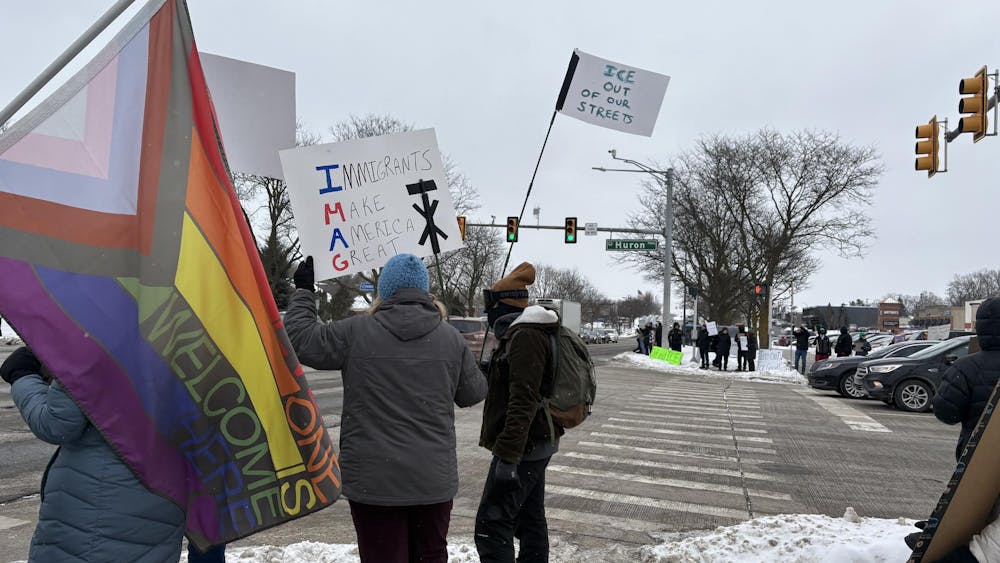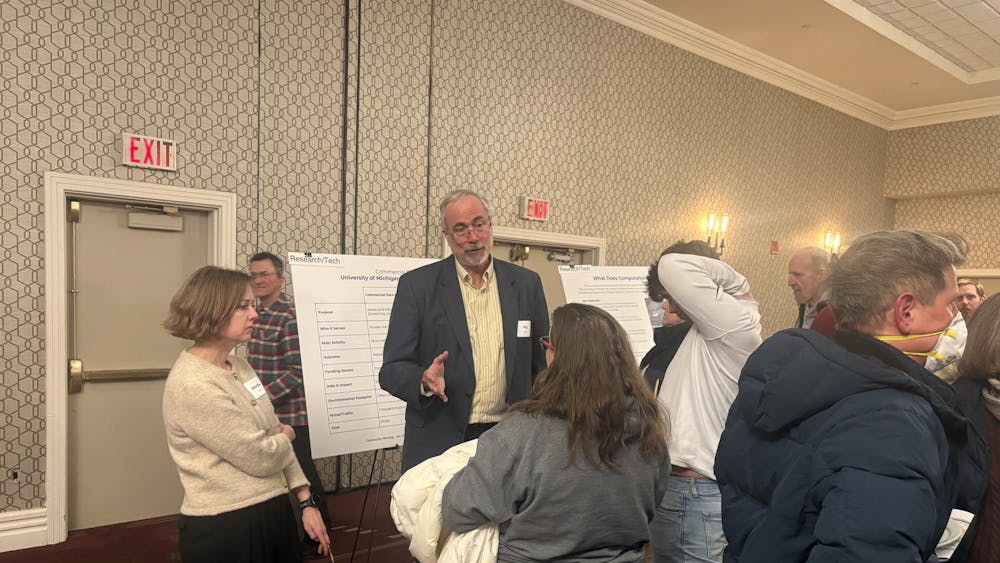“Growing Up Muslim in Bombay” is an equal parts autobiography and poem book written by Saleem Peeradina. Peeradina teaches at Siena Heights University in Adrian, a school that he described as being “strategically isolated.”
Peeradina said at the Muslim Journeys event at the Halle Library on Wednesday that it is not a scientific examination of the realities of being Muslim in India, but rather “my own journey, my own experiences.”
The book starts at his childhood and goes through his life up until the present. It chronicles his childhood in cosmopolitan Bombay, his journey to becoming agnostic in college, his short teaching career in India, grad school at Wake-Forrest University and his life as an adult in the U.S.
“I think it benefits students when they hear a first person account of a person who has lived some of these questions other than from a textbook,” Peeradina said.
He said that the media often portrays Muslims negatively.
“It’s very important because it shapes public imagination and image of what Muslims are,” Peeradina said. “In a strange culture they get these selective views, through media, of what people are supposed to be like. And they don’t get the whole picture. That’s why [the Americans’] image of
Muslims is somebody in a hijab, or someone with a beard, somebody with the name ‘Mohammed,’ superficial things. So it’s highly important, especially for young people to get the correct picture and get the whole picture.”
Peeradina said he grew up in the biggest city in India and that it would be difficult for him to grow up as a Muslim in a rural area.
“Discrimination is very strong there, no power,” he said. “You have no education, no economic status, you have no real status to stand and be counted as a citizen. You’re constantly under someone’s thumb, and religiously, you are discriminated against.”
He said the issues are slightly decreasing in some parts of India.
“In the cities it is decreasing because of education and social life,” he said. “In the smaller towns it is improving but not to the extent that it is in the cities. Traditions are stronger there. The people don’t want to give it up, because they value that religion. They feel under siege so they try their best to hold on to it.”
Peeradina said that prejudice is still a problem.
“With Obama’s election for example, we all thought that racism was a thing of the past,” he said.
“Then you’re faced with examples of blacks being denied this, that or the other. Then you know that we haven’t made that much progress. We still have a long way to go. I think the same kind of thing applies to Muslims here.”








